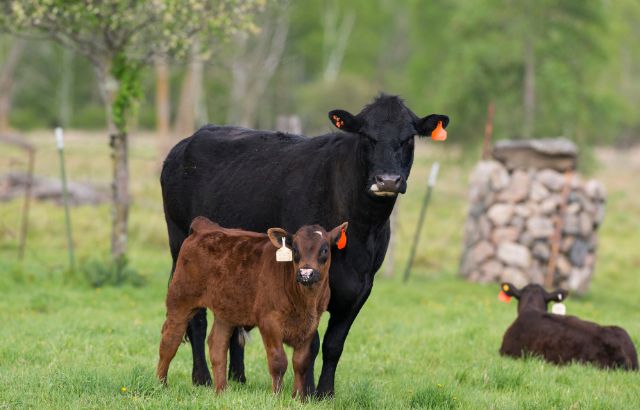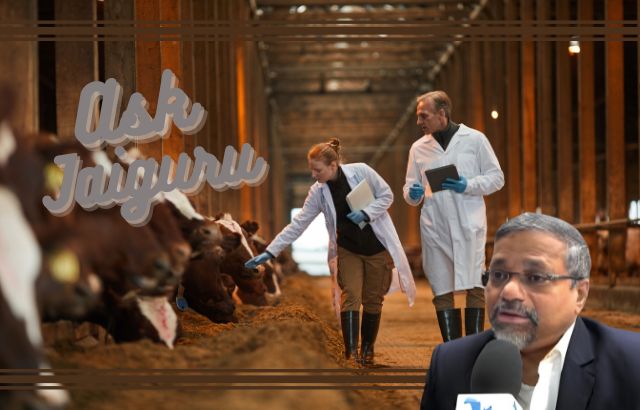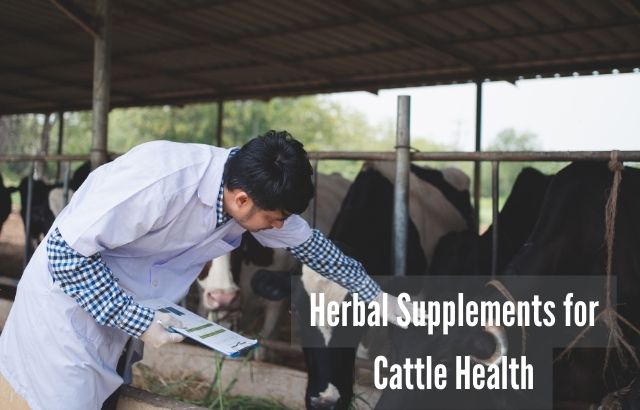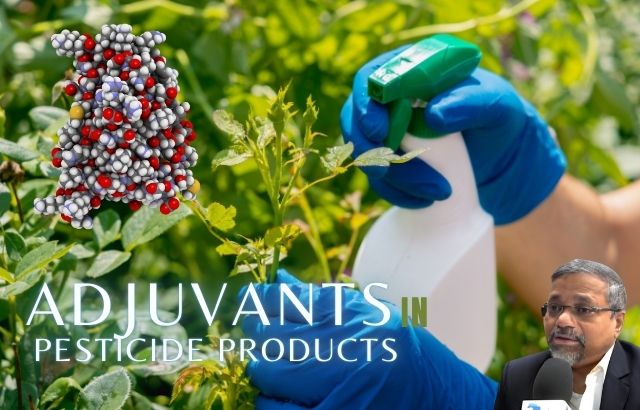Table of Contents
ToggleIn the world of modern agriculture, where intensive farming practices and heavy reliance on pharmaceuticals are common, holistic livestock care is gaining momentum. Holistic care focuses on treating the whole animal, considering their physical, emotional, and environmental needs. By integrating natural remedies and herbal supplements into livestock management, farmers can ensure the long-term health and well-being of their cattle while promoting sustainability and reducing dependency on synthetic chemicals. In this blog, we’ll explore the concept of holistic livestock care, highlight natural remedies, discuss the role of green innovators, and share insights from Agriculture Green Innovator Jaiguru Kadam.
The Importance of Holistic Livestock Care
Holistic livestock care is not merely about curing diseases; it’s about creating an environment where cattle can thrive. The holistic approach addresses all factors that influence an animal’s health, including:
- Nutrition: Ensuring cattle receive a well-balanced diet, rich in essential nutrients.
- Environment: Providing proper living conditions that reduce stress and promote natural behavior.
- Physical Care: Treating injuries, illnesses, and conditions with natural alternatives, often avoiding chemical interventions.
- Mental and Emotional Health: Reducing stress and promoting the emotional well-being of cattle through natural means.
Harnessing the Power of Natural Remedies and Herbal Supplements
Natural remedies and herbal supplements are essential components of holistic livestock care. These alternatives not only help reduce the use of chemicals and antibiotics but also provide more sustainable solutions to cattle health. Here are a few examples:
1. Herbal Remedies for Cattle Health
- Neem (Azadirachta indica): Known for its antibacterial and anti-inflammatory properties, neem is used to treat various ailments like diarrhea, skin infections, and internal parasites in cattle.
- Ginger (Zingiber officinale): Ginger is widely used for its digestive benefits. It can stimulate appetite, alleviate bloat, and improve overall digestive health.
- Turmeric (Curcuma longa): Turmeric is a powerful anti-inflammatory herb that can be used to treat joint issues, reduce fever, and support liver function.
2. Natural Supplements for Nutrition
- Kelp (Ascophyllum nodosum): Rich in trace minerals, vitamins, and amino acids, kelp is an excellent supplement for improving cattle nutrition and enhancing immune function.
- Apple Cider Vinegar: It is often used to improve digestive health, regulate pH levels in the stomach, and boost immunity.
- Probiotics and Prebiotics: These are beneficial bacteria and fiber supplements that promote gut health, improve digestion, and boost the immune system.
3. Essential Oils for Stress Relief and Healing
- Lavender: Known for its calming properties, lavender can be used to reduce stress, anxiety, and improve sleep in cattle.
- Peppermint: Used to relieve bloating and enhance digestive function, peppermint oil is often added to cattle’s feed or water.
The Role of Green Innovators in Holistic Livestock Care
Green innovators are individuals and organizations focused on sustainable agricultural practices and environmentally friendly technologies. They are instrumental in reshaping the way livestock care is approached, providing farmers with innovative tools, techniques, and knowledge to create a healthier and more sustainable farming environment.
Jaiguru Kadam, a prominent agriculture green innovator, has been a pioneer in promoting holistic livestock care in rural India. His efforts have led to the widespread use of natural remedies, organic farming practices, and eco-friendly technologies in cattle farming. Jaiguru’s innovative methods not only improve cattle health but also enhance the overall productivity and sustainability of farms.
For instance, Kadam has developed methods of formulating natural herbal supplements using locally available plants, thus making it easier for farmers to integrate them into their cattle care routine. His work has helped reduce the reliance on chemical pesticides, antibiotics, and other synthetic solutions, providing a cleaner and safer alternative for farmers and consumers alike.
Benefits of Holistic Livestock Care

- Improved Animal Health: By using natural remedies and supplements, cattle experience fewer side effects and long-term health problems, contributing to better productivity.
- Reduced Chemical Dependency: The use of herbal supplements and natural remedies reduces the need for antibiotics and other chemicals, promoting sustainable farming practices.
- Cost-Effectiveness: In the long run, using natural treatments and organic supplements can save money that would otherwise be spent on expensive pharmaceutical products.
- Environmentally Friendly: Holistic care methods focus on environmental sustainability, reducing soil and water contamination from synthetic chemicals.
Examples from Jaiguru Kadam’s Work
Jaiguru Kadam has pioneered several strategies that farmers can implement for better cattle care. Some of his notable examples include:
- Homeopathy for Cattle: Jaiguru recommends the use of homeopathic remedies to treat common cattle ailments. For instance, he uses Arnica for injury and trauma and Aconite for fever and inflammation.
- Herbal Pastures: Kadam promotes the cultivation of medicinal herbs like Ashwagandha and Tulsi in cattle pastures. These herbs help in boosting immunity and reducing stress in cattle.
- Green Feed: Kadam advocates for feeding cattle a variety of organic, green fodder enriched with herbs to ensure a holistic, nutrient-rich diet that strengthens the cattle’s health and immunity.
Ask Jaiguru-Frequently Asked Questions (FAQs)

Q1: What are some common herbal remedies used for cattle health?
A1: Common herbal remedies include Neem, Turmeric, Ginger, and Garlic. These herbs have antibacterial, anti-inflammatory, and digestive properties that support cattle health.
Q2: How can natural supplements improve cattle nutrition?
A2: Natural supplements like kelp, apple cider vinegar, and probiotics help improve cattle digestion, boost immunity, and provide essential nutrients that might be lacking in their regular feed.
Q3: What is the role of a green innovator in livestock care?
A3: A green innovator like Jaiguru Kadam helps farmers transition to sustainable farming practices by promoting natural remedies, organic supplements, and eco-friendly technologies. They contribute to reducing environmental impact and improving cattle health.
Q4: Are there any cost savings with holistic livestock care?
A4: Yes! By reducing reliance on expensive pharmaceuticals, pesticides, and fertilizers, farmers can save money in the long run. Natural remedies and organic practices are often more affordable and sustainable.
Q5: How can farmers get started with holistic livestock care?
A5: Farmers can begin by researching and integrating natural remedies and herbal supplements into their cattle’s diet, establishing cleaner living environments, and minimizing the use of synthetic chemicals. Consulting with green innovators like Jaiguru Kadam can also provide valuable insights and support.
Calculations and Insights from Agriculture Green Innovator Jaiguru Kadam
Let’s consider the cost comparison between synthetic treatments and natural remedies for a farm of 100 cattle:
1. Cost of Antibiotics and Pharmaceuticals
- Average cost per cow per year for antibiotics: ₹1,500
- Total cost for 100 cattle: ₹1,500 x 100 = ₹1,50,000
2. Cost of Natural Remedies and Herbal Supplements
- Average cost per cow per year for herbal supplements: ₹500
- Total cost for 100 cattle: ₹500 x 100 = ₹50,000
3. Savings per Year
- Savings per year by switching to natural remedies: ₹1,50,000 – ₹50,000 = ₹1,00,000
By adopting holistic practices, farmers can save a significant amount of money on pharmaceutical costs while ensuring the health and sustainability of their cattle and farming operations.
Conclusion
Holistic livestock care, powered by natural remedies and herbal supplements, offers a sustainable and healthier approach to farming. By incorporating these practices into their operations, farmers can enhance cattle health, reduce reliance on chemicals, and contribute to a more eco-friendly farming environment. With the guidance of green innovators like Jaiguru Kadam, farmers can transition to more sustainable and cost-effective methods, ensuring long-term success for both their cattle and their farm.










